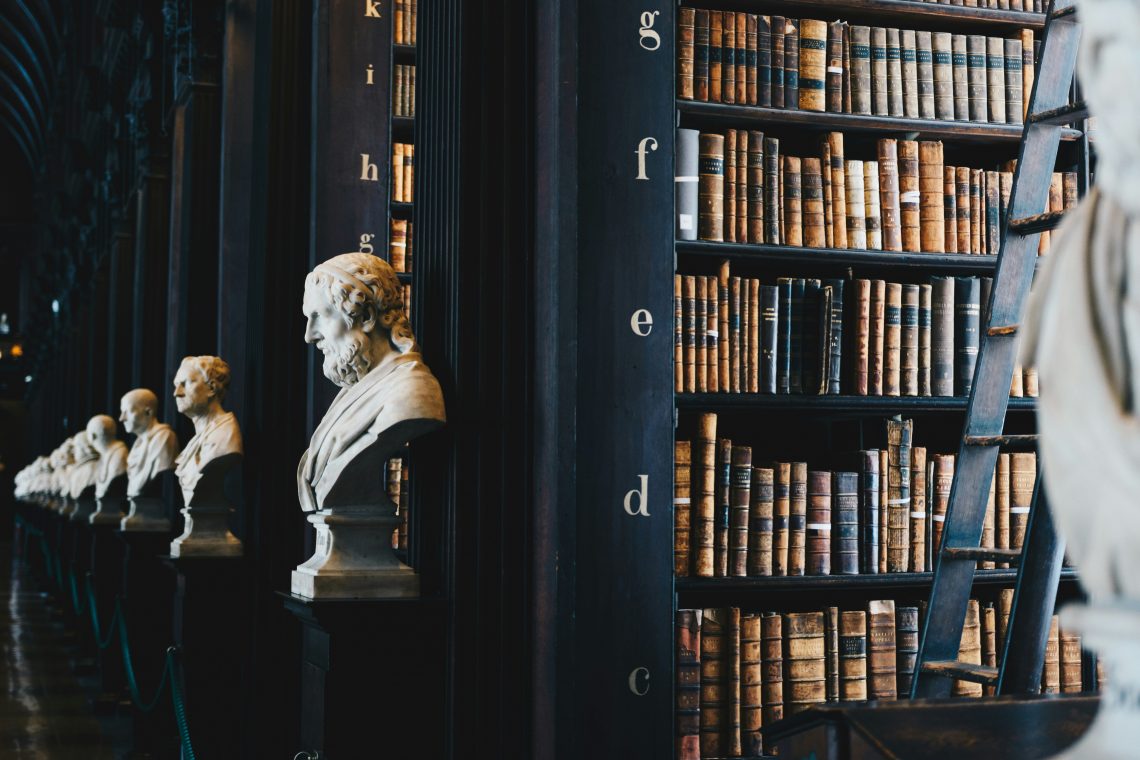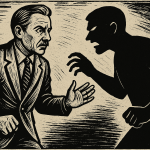What the Great Minds Say: Life Lessons from Philosophers, Poets, and Prophets
Let’s be honest: life can feel like a dumpster fire wrapped in an existential meme. One minute you’re enjoying a quiet walk, the next you’re spiraling about the meaning of life, your career, and whether your dog really loves you or just wants food.
But you’re not alone. Humans have been wrestling with these questions for thousands of years. And lucky for us, some of them—thinkers, mystics, prophets, and philosophers – wrote down their best ideas. Their wisdom can help us live with more clarity, more courage, and (believe it or not) more joy.
This isn’t a dry history lesson. It’s your go-to guide for what some of the greatest minds—from Buddha to Nietzsche to David Foster Wallace—have to say about being human.
Grab a coffee, open your mind, and let’s explore.
1. Socrates – The Power of Asking Why
Let’s start with the O.G. of philosophy: Socrates. No books, no TED Talks—just one Greek guy asking uncomfortable questions in the town square.
“The unexamined life is not worth living.”
Socrates believed that true wisdom comes not from knowing, but from realizing how much you don’t know. He was like a life coach for ancient Athens, urging everyone to reflect, challenge assumptions, and pursue truth – even if it made people (and eventually the government) really uncomfortable.
Modern Wisdom: You don’t need all the answers. But you do need to ask the right questions. Don’t settle for autopilot -stay curious.
2. Buddha – Detach to Be Free
Born as Siddhartha Gautama, the Buddha walked away from royal life to figure out why humans suffer. After deep meditation, he reached enlightenment and taught the Four Noble Truths.
“You only lose what you cling to.”
The core insight? Suffering is caused by attachment -to things, people, outcomes. Peace isn’t found in control, but in letting go. Mindfulness, compassion, and acceptance are his tools for freedom.
Modern Wisdom: Want less, feel more. Practice breathing, presence, and letting go of the stuff you can’t control.
3. Confucius – Be a Better Human, Every Day
Confucius wasn’t interested in heaven or mystical enlightenment. He wanted to fix this world—one respectful person at a time.
“It does not matter how slowly you go as long as you do not stop.”
His philosophy was rooted in ritual, respect, and responsibility. Society, he believed, starts with individuals who practice self-discipline, kindness, and integrity.
Modern Wisdom: You don’t need to change the whole world—just do your part well. Keep showing up. Character matters.
4. Jesus – Love Is the Ultimate Power
Whether you view him as divine or human, Jesus‘ teachings reshaped the world. He taught in stories – parables that still cut through noise today.
“Love your neighbor as yourself.”
Jesus emphasized love over legalism, mercy over judgment, and forgiveness over revenge. His was a radical compassion: healing lepers, feeding the hungry, defending outcasts.
Modern Wisdom: Love big. Forgive fast. Look out for the people everyone else overlooks.
5. Lao Tzu – Flow with Life
Lao Tzu, author of the Tao Te Ching, gave us Taoism – an ancient Chinese philosophy of effortless action.
“Nature does not hurry, yet everything is accomplished.”
He taught that forcing things often backfires. Instead, we should move in harmony with the “Tao” – the way of nature. Be like water: adaptable, calm, and strong.
Modern Wisdom: Don’t fight the flow. Align with it. Stop grinding, start gliding.
6. Marcus Aurelius – Inner Peace in Outer Chaos
Marcus Aurelius, a Roman emperor and Stoic philosopher, wrote Meditations as personal notes. It became a survival manual for life.
“You have power over your mind—not outside events. Realize this, and you will find strength.”
Marcus taught that while we can’t control life, we can control our reactions. Dignity, patience, and discipline are how we win the inner game.
Modern Wisdom: You can’t always change what happens, but you can always change how you show up.
7. Nietzsche – Face the Abyss and Create
Time to go deep: Friedrich Nietzsche, the wild German philosopher who declared “God is dead” (misunderstood quote alert), also gave us powerful tools for self-overcoming.
“He who has a why to live can bear almost any how.”
Nietzsche wasn’t anti-spiritual – he was anti-fluff. He wanted us to live authentically, reject herd thinking, and embrace hardship as fuel for greatness. His idea of the Übermensch (superhuman) was someone who transforms suffering into strength.
Modern Wisdom: Life is hard. Embrace the challenge. Create your own values. Become who you are.
8. Rumi – Love Is the Bridge
Rumi, a 13th-century Persian poet and Sufi mystic, wrote like he had a hotline to the divine. His poetry melts the boundaries between soul and sky.
“The wound is the place where the Light enters you.”
He saw pain as a doorway, not a dead end. For Rumi, everything, even heartbreak, was a path back to the Beloved, a symbol of ultimate love.
Modern Wisdom: Let your heart break open. There’s beauty in longing, and joy in surrender.
9. Muhammad – Strength in Character
The Prophet Muhammad was known not just for revelation, but for kindness, humility, and unwavering ethics.
“The best among you are those who have the best manners and character.”
He taught that spiritual practice is useless without ethical conduct. He emphasized self-restraint, charity, honesty, and mercy, especially when it’s hardest.
Modern Wisdom: True strength isn’t how loud you are,it’s how well you treat others, especially when no one’s watching.
10. Rabbi Hillel – Urgency with Compassion
A Jewish sage from the 1st century BCE, Rabbi Hillel packed deep truths into tiny sentences.
“If not now, when?”
His three-part quote is a life compass: care for yourself, care for others, and don’t delay doing good.
Modern Wisdom: Don’t wait to be better, kinder, braver. Life is short. Do it now.
11. Simone Weil – Attention Is Love
French philosopher Simone Weil believed that attention is the purest form of generosity.
“Attention, taken to its highest degree, is the same thing as prayer.”
She saw modern life’s distractions as spiritual poison. Real connection, she believed, comes from deep listening, to others, to suffering, to the world itself.
Modern Wisdom: Put the phone down. Look someone in the eyes. Your presence is a sacred gift.
12. Alan Watts – The Game of Life
Alan Watts translated Eastern ideas for the Western world, delivering trippy but profound insights in a charming British accent.
“You are the universe experiencing itself.”
He suggested that life isn’t a problem to solve but a game to play. We’re not isolated egos—we’re waves in the same ocean. The goal isn’t control, but participation.
Modern Wisdom: Don’t take yourself too seriously. Dance with life. Laugh at the cosmic joke.
13. David Foster Wallace – This Is Water
Writer David Foster Wallace isn’t a traditional philosopher, but his 2005 commencement speech “This Is Water” is one of the most powerful philosophical reflections of the 21st century.
“The real value of a real education has almost nothing to do with knowledge and everything to do with simple awareness.”
Wallace warned us about unconscious living: drifting through life, reacting to everything with self-centered frustration. He encouraged us to choose what we pay attention to—and to reframe ordinary moments with compassion.
Modern Wisdom: Life’s meaning isn’t hidden in grand events. It’s in how you respond to traffic, to grocery lines, to people who annoy you. Awareness is the magic.
14. Carl Jung – Own Your Shadow
Jung, the Swiss psychiatrist and thinker, gave us ideas like archetypes, introversion, and the collective unconscious.
“Until you make the unconscious conscious, it will direct your life and you will call it fate.”
He believed we all have a shadow—the hidden, rejected parts of ourselves. Facing that shadow isn’t weakness, it’s the path to wholeness.
Modern Wisdom: Stop pretending to be perfect. Own your flaws. Healing begins with honesty.
15. Thich Nhat Hanh – Peace Is Now
The late Vietnamese monk Thich Nhat Hanh brought mindfulness to the West in the gentlest way possible.
“Walk as if you are kissing the Earth with your feet.”
He taught that peace isn’t a future goal, it’s a practice. Every breath, every step, every sip of tea is a chance to be fully alive.
Modern Wisdom: You don’t need to escape to find peace. Just slow down and notice.
Final Thoughts: Building Your Own Philosophy
So what do all these voices, from ancient prophets to modern poets, have in common?
They aren’t telling you to believe blindly. They’re inviting you to live deeply.
Some say life is about love. Others say it’s about self-mastery. Some focus on presence, others on passion. But woven through it all is a call to wake up, take responsibility, and live on purpose.
Because here’s the truth: no single philosophy has it all. But taken together? They form a kind of spiritual playlist—a mix of beats and bars that can help you move through life with more meaning.
You don’t need to be a monk, or a philosopher, or a genius. You just need to start paying attention.
And maybe, just maybe, ask yourself what your wisdom will be.
Your Turn
Which philosopher’s wisdom speaks to you the most? Are you a “flow like water” Taoist, a “build your character” Stoic, or a “face the abyss” Nietzschean?
Drop a comment, share this with a fellow seeker, or jot down your own favorite quote somewhere visible.
Because in the end, life is short. But wisdom? That stuff lasts forever.






Comments by The Dapper Savage